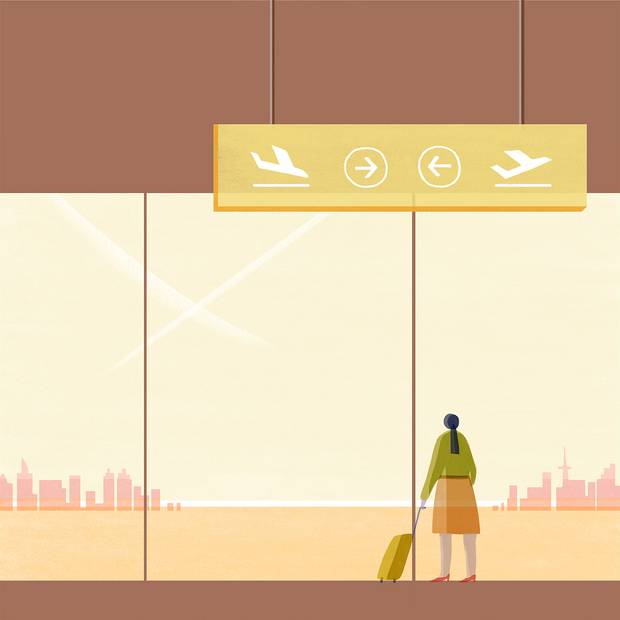Facts & Arguments is a daily personal piece submitted by readers. Have a story to tell? See our guidelines at tgam.ca/essayguide.
I am an immigrant, but I'm careful to use the word "home" these days. In fact, sometimes I'd rather not use the word at all. It's not because I feel like I don't have one. On the contrary, it's because I have two. By saying, "This place is home," I worry that the other place that is just as close to my heart will be perceived to be of less significance.
I made the decision to move to Canada in 2005, under the government's Skilled Worker immigration program. I was in the thick of my 20s then, living in the Philippines, and at a season of life where I felt that I could touch the moon. The requirements were daunting: binders' worth of education and employee documents from years' past, interviews at every turn, a physical exam, an "exploratory visit" to the country. The scrutiny was unnerving.
But the toughest requirement – as I would find out – was to have a heart that could hold both hope and grief at the same time.
My application for permanent residency was approved a year later and the announcement of my impending move had to be made to my loved ones. No one really tells you about this chapter of the story and nothing prepares you for it.
I told my family I was leaving during our weekly get together. My mother's side of the family gathers in my grandmother's house every Friday. It's tradition: My aunts, uncles and cousins take their assigned seats at the long dining table, feast on one another's stories over home-cooked dishes and dissect the week that's transpired. You need to raise your voice to be heard because conversations are so animated, and laughter – startling, contagious laughter – often fills the dining room. One end of the table could be talking about politics (or the odd relative), while the other end could be discussing the plot of the latest movie. Whatever the case, there were full bellies and nourished spirits by evening's end.
I tried to be casual about making the announcement because the last thing I wanted was to alter the emotional climate of the room.
"So, my application to Canada was approved. I'll be leaving in two months," I told Cara, my youngest cousin, in an almost hushed tone. She was seated next to me at the table.
"Wait … you're leaving?! What?"
Her reaction caught the attention of the rest of the family. Within seconds, a silence fell. I looked at the faces around the table. These were the people who saw me grow up, cheered me on, nurtured me. The pillars of my life.
I studied my aunts' faces, my mother's sisters, and memories rose to the surface – their kindness, understanding and compassion throughout my life. I looked at my uncles: The men who taught me how to ride a bike, tinker with electronics and engage in sports. My chest tightened. It dawned on me that by leaving, I could no longer repay them with the same gift of time. And then there were my cousins – all of whom I love and regard as siblings. I remembered all six of us in Grandma's garden, lying down on our backs, eating half-ripe mangoes while staring at the clouds – that, ultimately, brought me to tears.
The same sky, no longer the same dreams.
While there was shock, sorrow and confusion in the days that followed, it was in my family's quiet, graceful acceptance that I understood the depth and breadth of their love.
On the eve of my flight to Canada, the entire family gathered in the dining room to send me off. When my aunt hugged me goodbye, she whispered, "Your dreams await. But remember that you'll always have a seat waiting for you at the table."
I would drink from the bittersweet cup of both hope and grief since my decision to move. It's been a little over a decade now since I arrived. I've pursued my graduate studies, nurtured relationships, embarked on a business career and went full throttle with my passion for writing. I'm not done yet, and it is because of this country that I still believe that the moon is within my reach.
I can't recall the exact moment when hope became bigger than my grief. But I do know this: Today, my cup runneth over. And I have more of myself to give.
I left behind a life in the Philippines, a good one, but Canada has given me better lives to choose from. I have the freedom to explore and celebrate who I am because opportunities are not constrained by race or social class or upbringing. I will spend the rest of my days thanking Canada for that.
I return to the Philippines annually for a three-week visit. It's always an interesting, joyful time: I see family that I've missed and reconnect with old friends. But returning to Manila entails leaving my home in Toronto and it's not always easy. I have "family" here now as well – close friends whom I've chosen. They are part of the blueprint of my goals and dreams and are the constants in my evolution and growth.
I used to wish that I could have all the people I love in one room. But realistically, I'll never make these two worlds of mine converge, especially since I've lived two vastly different lives in each place. I don't think they were ever meant to intersect, but that doesn't mean I have to abandon one for the other.
I am profoundly lucky. I have two homes. One holds my past; the other my present. Together, they have enriched my life.
Carissa Duenas lives in Toronto.
